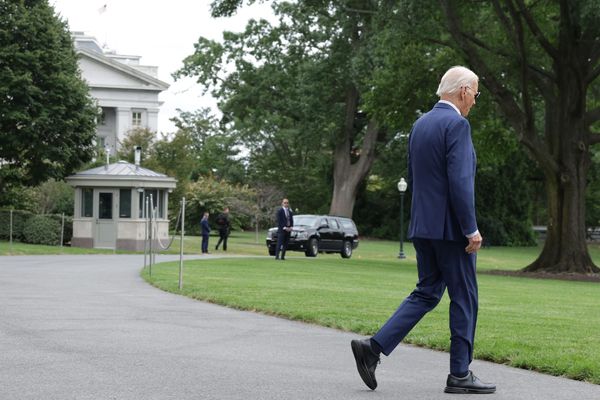
There are two bodies that still need to explain themselves in relation to the revelations by the Financial Review’s Neil Chenoweth that mining billionaire Chris Ellison ripped off both his own company and taxpayers.
One is the Mineral Resources board. The other is the Australian Tax Office. Both look like they’re treating us with contempt.
The Mineral Resources board thinks it’s sufficient that Ellison will repay almost $3.8 million in funds owed, forfeit bonuses claimed to be worth $9.6 million and make charitable donations totalling $5 million over the coming years, before stepping down in the next 12-18 months, along with Mineral Resources chair James McClements.
Like the “LinkedIn Lecher” Richard White at Wisetech, Ellison’s is very much a Clayton’s sacking, with the 67-year-old basically allowed to take his sweet time moving on at his own convenience. And being forced to cough up $5 million in charitable donations — what a burden for a billionaire! (Presumably Ellison will avail himself of the tax loss status of those deductions to once again cut back on his tax.)
Mind you, at least the MinRes board thinks Ellison engaged in misconduct. Some investors, like L1 Capital, seem to think it’s neither here nor there that Ellison used its employees as his own personal staff and gave his family mates’ rates on company property, not to mention “using the company to procure goods and services for his private use”.
Hilariously, the MinRes board reckons a lot of these problems are because of “the company’s rapid growth, particularly in the last five years, placed pressure on its governance systems and processes.”
Yep, rapid growth will make you rip off your own company.
None of this would have come to light except for the hard work of Chenoweth. And the Australian Tax Office (ATO) was in on the cover-up, given it complied with Ellison’s demand that it not reveal his tax evasion to the Australian Securities and Investments Commission or the Australian Federal Police.
The line from the ATO is that it has to make these sorts of secret deals with big tax dodgers because it can’t litigate everything or audit everyone. That’s fair enough. But the ATO doesn’t seem to understand that the quid pro quo of it keeping such deals secret is that your average taxpayer needs to have faith that the ATO’s secret deals contain an appropriate punishment for people try to evade taxes.
And the ATO’s decision to fine Ellison just $3.9 million — including interest! — for a multi-year scheme that netted him $3.7 million starting two decades ago, can hardly be regarded as appropriate punishment.
As Michael Pascoe noted when the story broke, the ATO-Ellison deal stands in dire contrast to the treatment of tax-evading music promoter Glenn Wheatley, who as part of Project Wickenby pleaded guilty to dodging around $318,000 in tax .The prosecutor described his fraud as “sustained and sophisticated”. Wheatley was publicly humiliated, got a 30 month jail sentence and served 10 months.
Why isn’t Ellison in jail like Wheatley for his sustained and sophisticated tax fraud?
Instead, he got a promise from the ATO, the guardians of our tax system, that it would keep it all secret from the coppers, while Ellison gets to negotiate how much he pays.
Like the MinRes board’s idea of punishment for Ellison, the ATO’s response looks a lot like a special deal for a mate rather than a proper enforcement of the standards it is charged with maintaining.
In an era when there’s extensive alienation toward the political and economic system, and the belief that the system is skewed toward the rich and powerful is widespread, the kid-glove treatment of Ellison for dodging tax in amounts most of us can only dream of, and using a major public company as his own personal butler service and helping himself to its vast assets, is extraordinary.







